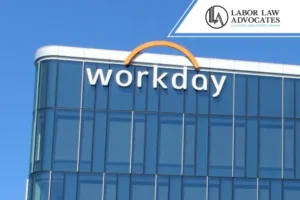October 9, 2023 – In a recent decision, a judge from the National Labor Relations Board (NLRB) ruled that Howard Schultz, the former CEO of Starbucks Corp, violated federal labor law by making inappropriate comments during a meeting in California. The incident occurred when Schultz was questioned by a barista named Madison Hall about the coffee chain’s response to unionization.
Administrative Law Judge Brian Gee, based in Los Angeles, concluded that Schultz’s comment during a “listening tour” last year constituted an illegal threat against Madison Hall. Schultz had met with a group of Starbucks employees in Long Beach, California, to discuss concerns about working conditions.
Starbucks, in a statement, did not directly comment on the finding that Schultz had violated the law. The company stated that it had organized listening sessions nationwide last year to gather feedback on how to enhance the in-store experience.
On the other hand, lawyers for Starbucks Workers United, a group representing the company’s workers, have not issued immediate comments on the decision.
Since late 2021, Starbucks workers from over 360 locations in the United States, including one in Long Beach, have voted to join unions. Starbucks and Schultz have faced allegations of illegal labor practices from workers, labor groups, and Democratic lawmakers. The company has denied these allegations and is defending against dozens of complaints before the NLRB and a U.S. Department of Labor investigation.
During the listening session held at a conference center in Long Beach last April, Madison Hall expressed the opinion that the company should engage in collective bargaining and sign a commitment not to interfere with unionization, among other remarks. According to board documents, no other worker in the meeting raised concerns related to unionization.
However, when Madison Hall asked Schultz about the allegations of illegal labor practices in the pending complaints before the NLRB, Schultz responded inappropriately by saying, “If you’re not happy at Starbucks, you can go work for another company.”
Judge Gee determined that this response showed an improper reaction from Schultz and constituted a warning that went against protected speech in favor of unions, which was incompatible with employment at Starbucks and thus violated the National Labor Relations Act.
It’s important to note that the judge’s decision can be appealed to the five members of the NLRB and subsequently to a federal appeals court. Additionally, the judge dismissed a separate claim that Starbucks had illegally interrogated workers during the meeting by asking them to write their concerns on sticky notes and place them next to comments from other workers they agreed with.
In its statement, Starbucks expressed satisfaction that Judge Gee found the listening session to be “both legal and rooted in our past practices.” However, this decision has significant implications for the company and its labor relations in the future.
Are you facing labor violations by your employer? You have the right to raise your voice and fight for the fair treatment you deserve. Labor Law Advocates have dedicated labor lawyers ready to advocate on your behalf. Call us today for a free consultation, and assert your labor rights.




